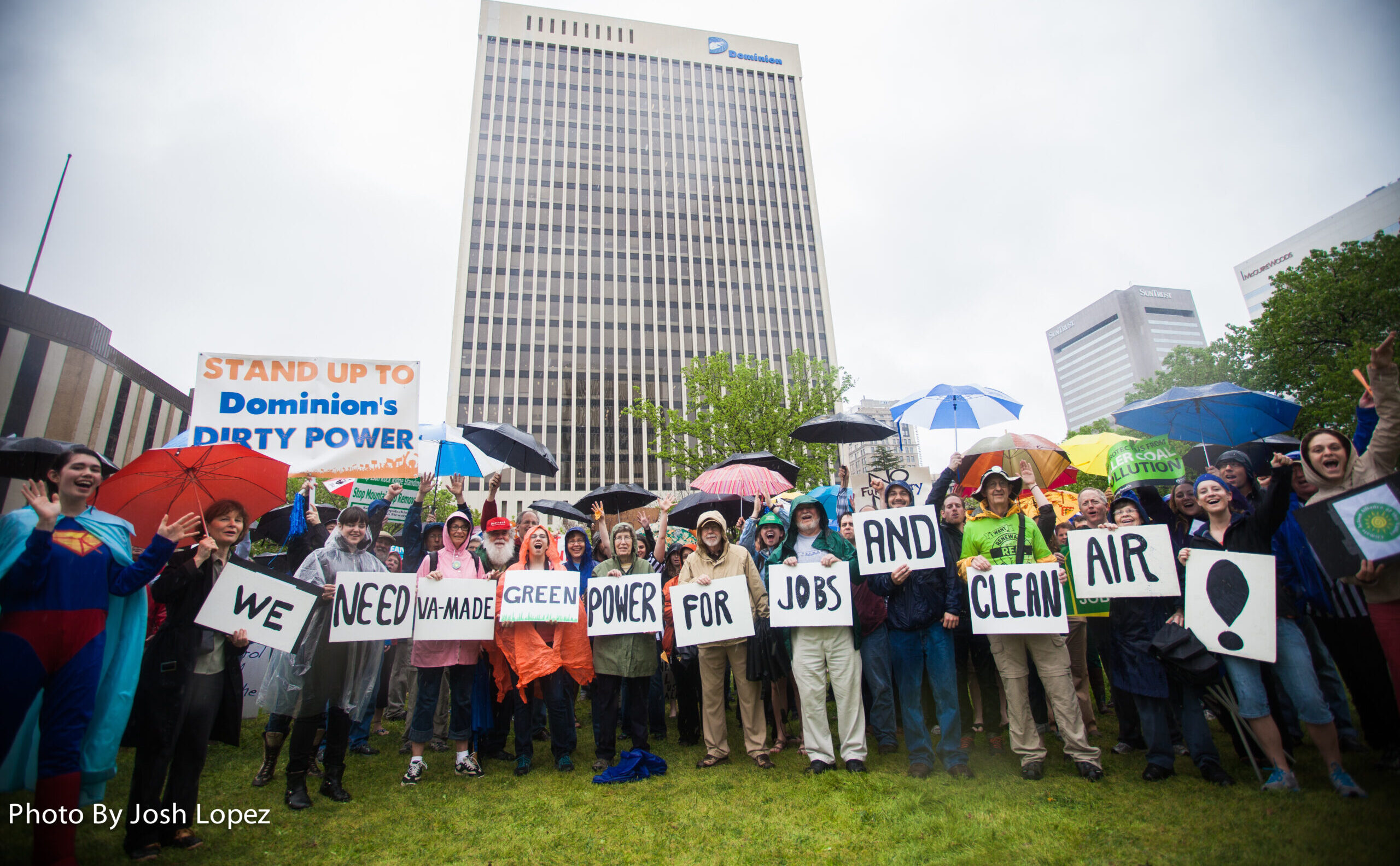
Dominion Energy’s IRP Misses the Mark on Clean Energy Commitments
- Posted on
- By Kidest
- In Press Releases, VA
SCC orders Dominion to adopt a 20-year outlook and include scenarios for retiring fossil fuel plants in next energy roadmap
RICHMOND, VA – The Virginia State Corporation Commission (SCC) issued an order yesterday accepting Dominion Energy’s latest Integrated Resource Plan (IRP) as “legally sufficient,” while pointing out several shortcomings of the Plan that the SCC expects to be corrected in the Company’s next IRP.
The SCC’s order includes several important directives aimed at improving Dominion’s future planning. Notably, the SCC highlighted that Dominion’s current IRP covers only a 15-year horizon, falling short of the 20-year timeframe necessary to fully account for the requirements of the Virginia Clean Economy Act (VCEA) to reach 100% carbon-free electricity by 2045. The SCC also directed Dominion to produce at least one scenario fully aligned with the VCEA, including the scheduled retirements of fossil fuel plants.
The IRP’s shortcomings are compounded by failures to model Commission-mandated energy efficiency targets and unnecessary build limits on battery storage. The SCC also noted that “land use challenges” are limiting the deployment of solar energy. Currently, 57 counties and cities in Virginia have bans or severe restrictions that make utility-scale solar development difficult or impossible. Local restrictions on solar development are systematically hindering the state’s progress toward a clean energy future and undermining the cost-effective transition required by law.
Victoria Higgins, Chesapeake Climate Action Network’s Virginia Director, released the following statement:
“The Commission’s order makes clear that Dominion’s plan, while ticking enough boxes to be deemed legally sufficient, falls far short of the mark in terms of providing a roadmap towards the least-cost and most efficient clean electricity portfolio required by law. At the end of the day, Dominion plans to build tens of billions of dollars worth of gas infrastructure to primarily serve the needs of Big Tech’s massive data center campuses. It’s a bad deal for Virginia.”
###
Chesapeake Climate Action Network is the first grassroots organization dedicated exclusively to raising awareness about the impacts and solutions associated with global warming in the Chesapeake Bay region. Founded in 2002, CCAN has been at the center of the fight for clean energy and wise climate policy in Maryland, Virginia, and Washington, DC.

